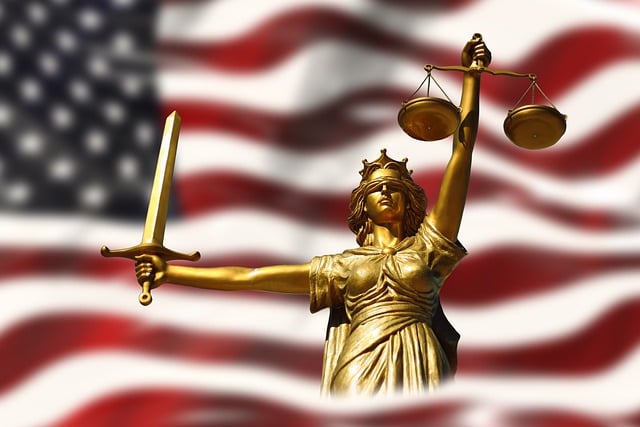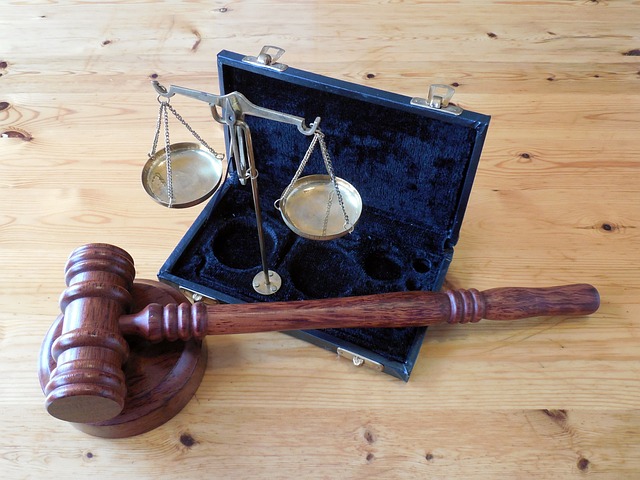Public corruption cases, demanding complex investigations, have led to plea bargaining as a strategic approach for efficient case management. This process involves defendants negotiating guilty pleas for reduced charges or penalties, balancing justice with caseload reduction. While successful in streamlining legal processes and benefiting regions with high corruption rates, critics argue it may compromise fairness and encourage individual benefit over accountability. Evaluating both positive outcomes and potential drawbacks is crucial to achieving a balance between efficient justice and integrity preservation in plea bargaining. Engaging philanthropic and political communities for ethical practices can further alleviate the burden of public corruption cases on courts.
“Public corruption charges pose a significant challenge to any criminal justice system, eroding public trust and distorting legal proceedings. This article offers a comprehensive overview of understanding public corruption charges, focusing on plea bargaining as a key strategy. We explore the role of plea deals in managing caseloads, delving into their advantages and disadvantages, while also examining alternative approaches. In light of the ongoing struggle with overburdened courts, this analysis investigates the effectiveness of plea bargaining in reducing caseloads and its broader implications for corruption mitigation.”
- Understanding Public Corruption Charges: A Comprehensive Overview
- The Role of Plea Bargaining in the Criminal Justice System
- Advantages and Disadvantages of Using Plea Bargaining
- Impact on Caseloads: Successes and Challenges
- Alternative Approaches to Mitigate Corruption Cases and Overburdened Courts
Understanding Public Corruption Charges: A Comprehensive Overview

Public Corruption Charges refer to instances where public officials abuse their power for personal gain, leading to serious legal implications. Understanding these charges requires a grasp of the intricate web of ethical and legal standards that govern public service. When an individual in a position of authority, such as a government official or politician, engages in acts like bribery, fraud, or misappropriation of public funds, it constitutes corruption. These cases often involve complex investigations, requiring specialized knowledge to navigate the legal system effectively.
The complexity of these matters necessitates a strategic approach from general criminal defense attorneys. One notable strategy gaining traction is the use of plea bargaining as a means to manage caseloads and achieve justice. By negotiating plea agreements, defendants can mitigate their charges and penalties, potentially leading to more favorable outcomes. This method has been effective in reducing court backlogs and allowing resources to be allocated towards other cases. Moreover, a skilled defense attorney can help clients navigate these negotiations, ensuring they receive a fair deal while aiming for winning challenging defense verdicts and achieving extraordinary results.
The Role of Plea Bargaining in the Criminal Justice System

Plea bargaining plays a significant role in the criminal justice system, offering an alternative to traditional trial proceedings. This process allows defendants to negotiate a plea deal with prosecutors, often resulting in a reduced charge or sentence length in exchange for admitting guilt. The effectiveness of plea bargaining in reducing caseloads is well-documented; it facilitates a more efficient and streamlined legal process by quickly resolving cases that don’t require extensive trials.
In the context of white-collar defense, plea bargaining has proven to be an unprecedented track record in managing complex cases involving financial crimes or public corruption. It allows for a strategic approach where defendants can navigate all stages of the investigative and enforcement process while mitigating potential consequences. This strategy not only ensures a more manageable legal battle but also provides a level of predictability and control over the outcome, which can be invaluable in such high-stakes scenarios.
Advantages and Disadvantages of Using Plea Bargaining

Plea bargaining is a strategic process in the legal system where defendants agree to plead guilty to reduced charges or face less severe penalties. This approach offers both advantages and disadvantages, especially in the context of public corruption cases. One significant benefit is its effectiveness in reducing caseloads. By encouraging plea agreements, courts can manage their dockets more efficiently, allowing them to handle a larger volume of cases overall. This strategy can be particularly beneficial in regions with high rates of corruption, where numerous cases may arise, straining judicial resources.
On the other hand, critics argue that plea bargaining may undermine the integrity of the justice system. Defendants who plead guilty without a full trial might not receive a fair judgment, and there’s always the risk of coercion or inadequate legal representation in such negotiations. For his clients, a general criminal defense strategy could prove more advantageous, ensuring a thorough investigation and a robust challenge to the prosecution’s case. An unprecedented track record of success in corruption cases could strengthen this argument, as it demonstrates an alternative approach that prioritizes fairness and accuracy over swift resolutions.
Impact on Caseloads: Successes and Challenges

The effectiveness of plea bargaining in reducing caseloads has been a subject of intense debate. In many cases, plea agreements have proven to be a powerful tool for both prosecutors and defendants. By offering reduced sentences or avoiding indictment altogether, these bargains can lead to quicker dispositions, thereby easing the burden on judicial systems. This is especially beneficial in regions grappling with unprecedented track records of public corruption charges, where a streamlined process can help maintain public trust and ensure fair outcomes.
However, challenges arise when the general criminal defense strategy shifts towards encouraging plea bargaining. While avoiding indictment might be advantageous for the individual defendant, it could also dilute the severity of consequences for corrupt officials. Balancing the need for efficient justice with holding individuals accountable is crucial. Effective strategies must therefore focus on both the success rates of plea bargaining in reducing caseloads and ensuring that such agreements do not compromise the integrity of the judicial process.
Alternative Approaches to Mitigate Corruption Cases and Overburdened Courts

To address the challenge of overburdened courts facing public corruption cases, alternative approaches like plea bargaining have gained prominence. This strategy involves defendants pleading guilty in exchange for reduced sentences or charges, thereby easing the judicial system’s load. The effectiveness of plea bargaining in reducing caseloads is well-documented; it streamlines processes and allows for more efficient management of resources. Moreover, this method can lead to faster resolutions, ensuring that judges have capacity to handle other critical matters.
Beyond plea bargaining, engaging philanthropic and political communities plays a vital role in mitigating corruption cases. By fostering ethical practices within respective business sectors and promoting transparency, these communities can prevent corruption at its source. This proactive approach not only lightens the legal burden but also paves the way for a complete dismissal of all charges, as it reduces the likelihood of corrupt activities that lead to judicial proceedings.
The complex issue of public corruption demands innovative solutions. While plea bargaining has proven effective in managing caseloads, it is crucial to balance its advantages with potential drawbacks. By exploring alternative approaches and learning from successful strategies, the criminal justice system can navigate the challenges posed by corruption cases while ensuring fairness and efficiency. Striking a delicate balance between these methods will ultimately contribute to a more robust and transparent legal framework.






